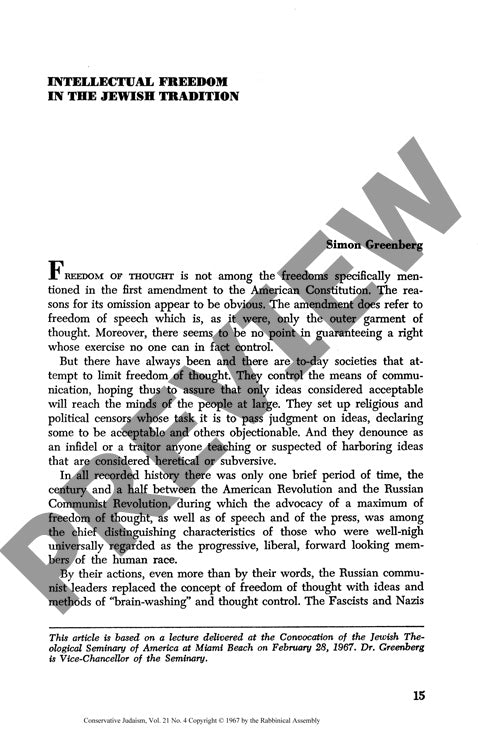Intellectual Freedom in the Jewish Tradi
Couldn't load pickup availability
Judaism's remarkable balance between religious orthodoxy and intellectual freedom stands in stark contrast to many other faith traditions. Through systematic analysis of Talmudic texts, biblical passages, and rabbinical commentaries, a pattern emerges of an extraordinarily permissive intellectual climate that accommodated diverse opinions on both legal and metaphysical matters. The Talmud preserves numerous contradictory viewpoints on doctrinal issues, with the tradition explicitly recognizing that human diversity of thought reflects divine creation. Evidence includes the peaceful coexistence of opposing schools of thought, most notably the famous disagreements between the schools of Shammai and Hillel, united under the principle that "the opinions of both schools are the words of the living God." Analysis of major theological concepts such as Torah min hashamayim and messianic doctrine reveals multiple conflicting interpretations, none claiming exclusive authority. These findings demonstrate how rabbinic Judaism achieved what Solomon Schechter termed "spiritual accommodation" - maintaining core religious commitments while preserving a vibrant culture of intellectual diversity and debate within a unified tradition.

More Information
-
Physical Description
-
Publication Information
Published 1967
ISBN
-
Publication Credits
Simon Greenberg

